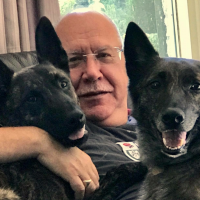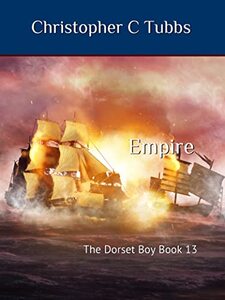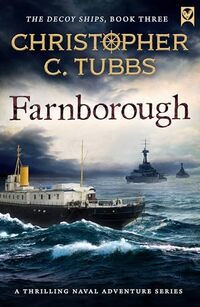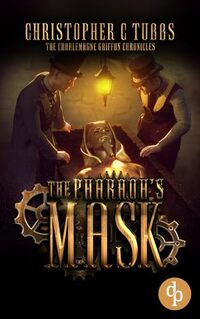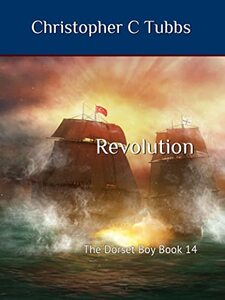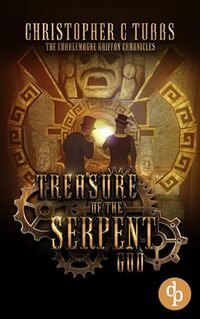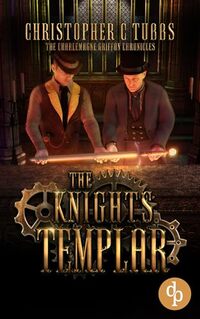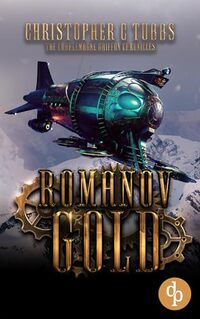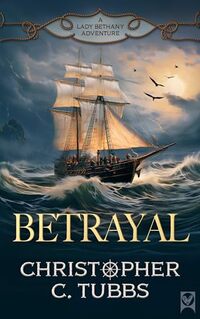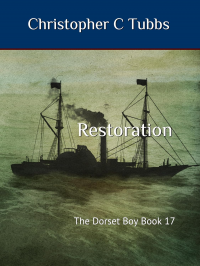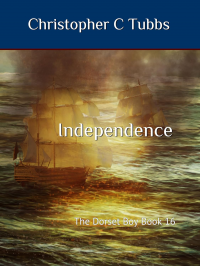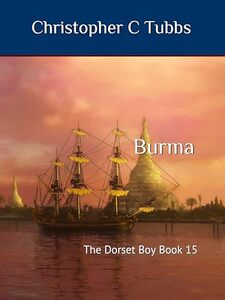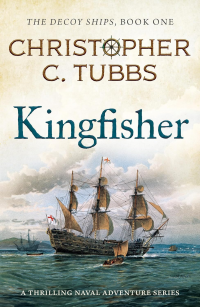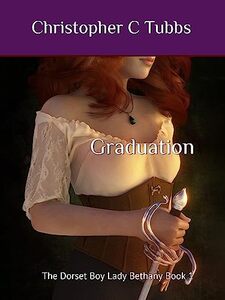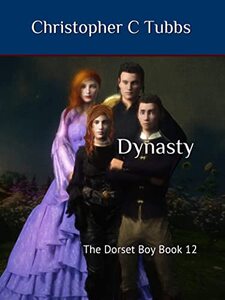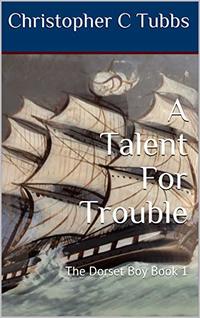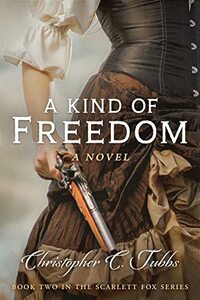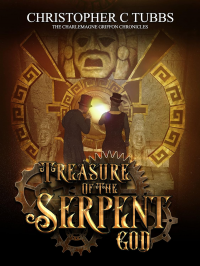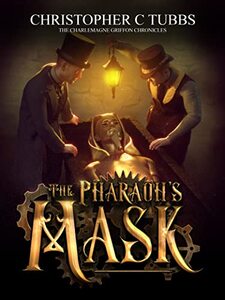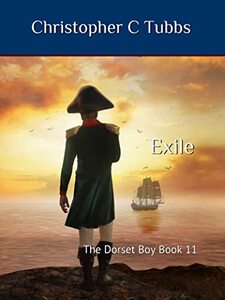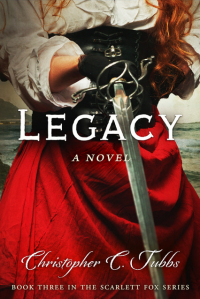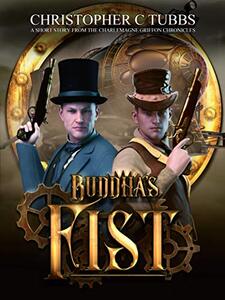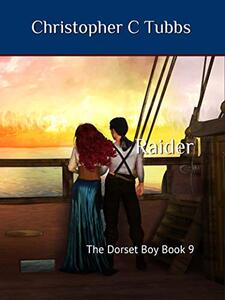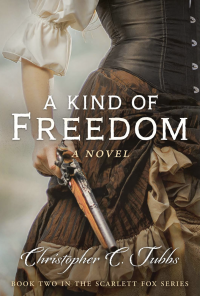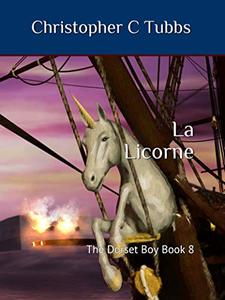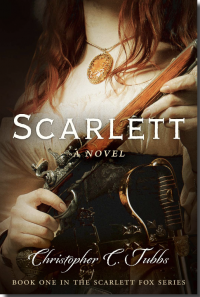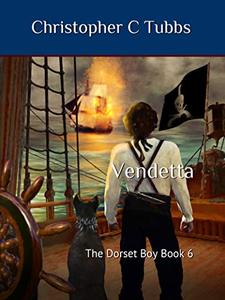Christopher C Tubbs's Books
Stay in the loop on books by Christopher C Tubbs. See upcoming and best-selling books by the author here. You'll also find the deals on books by Christopher C Tubbs.
** Please note that the information or price displayed here may not be the updated. Make sure to double-check the latest book price before buying books.
** Also, there might be other books by Christopher C Tubbs not listed on AllAuthor.
| Book |
|---|
Empire: The Dorset Boy Book 13Publish: Dec 09, 2022Series: The Dorset BoyAction & Adventure Historical Fiction |
FARNBOROUGH a thrilling historical WWI naval adventure (The Decoy Ships series Book 3)Publish: Jun 18, 2025Thriller Action & Adventure |
REVENGE a thrilling historical naval adventure (The Lady Bethany series Book 3)Publish: Sep 24, 2025Action & Adventure Historical Fiction |
The Pharaoh's Mask: A steampunk alternative history novel (The Charlemagne Griffon Chronicles Book 1)Publish: Oct 31, 2024Historical Mystery Action & Adventure Science Fiction Fantasy |
Treasure: The Dorset Boy Book 18Publish: Jun 27, 2025Action & Adventure Historical Fiction Literary Fiction |
Revolution: The Dorset Boy Book 14Publish: May 26, 2023Series: The Dorset BoyAction & Adventure Historical Fiction |
Warley: A BRAND NEW thrilling historical naval adventure (The Decoy Ships series Book 2)Publish: Jun 06, 2024Action & Adventure Historical Fiction |
Treasure of the Serpent God: A steampunk alternative history novel (The Charlemagne Griffon Chronicles Book 2)Publish: Nov 14, 2024Action & Adventure |
The Knights Templar : A steampunk alternative history novel (The Charlemagne Griffon Chronicles Book 3)Publish: Dec 05, 2024Action & Adventure |
Romanov Gold: A steampunk alternative history novel (The Charlemagne Griffon Chronicles Book 4)Publish: Dec 12, 2024Action & Adventure |
BETRAYAL a thrilling historical naval adventure (The Lady Bethany series Book 2)Publish: Mar 05, 2025Action & Adventure Historical Fiction |
Restoration: The Dorset Boy Book 17Publish: Jan 14, 2025Series: The Dorset BoyThriller Action & Adventure Historical Fiction |
Romanov Gold: The Charlemagne Griffon ChroniclesPublish: Mar 22, 2024Historical Mystery Action & Adventure Historical Fiction |
Burma: The Dorset Boy Book 15Publish: Dec 15, 2023Series: The Dorset BoyAction & Adventure Historical Fiction |
KINGFISHER a thrilling historical naval adventure (The Decoy Ships series Book 1)Publish: Oct 05, 2023Action & Adventure Historical Fiction |
Graduation: The Dorset Boy Lady Bethany Book 1Publish: Aug 25, 2023Action & Adventure Women's Fiction |
Dynasty: The Dorset Boy Book 12Publish: May 13, 2022Series: The Dorset BoyAction & Adventure Historical Fiction Teen & Young Adult |
A Talent For Trouble: The Dorset Boy Book 1Publish: Oct 15, 2018Series: The Dorset BoyAction & Adventure Historical Fiction |
Silverthorn: The Dorset Boy book 10Publish: Jun 11, 2021Series: The Dorset BoyAction & Adventure Historical Fiction |
The Knights Templar: The Charlemagne Griffon ChroniclesPublish: Mar 31, 2023Series: The Charlemagne Griffon ChroniclesAction & Adventure Fantasy |
Treasure Of The Serpent God: The Charlemagne Griffon ChroniclesPublish: Aug 08, 2022Series: The Charlemagne Griffon ChroniclesAction & Adventure Fantasy Teen & Young Adult |
The Pharaoh's Mask: The Charlemagne Griffon ChroniclesPublish: Mar 18, 2022Series: The Charlemagne Griffon ChroniclesAction & Adventure Teen & Young Adult |
Exile: The Dorset Boy book 11Publish: Dec 05, 2021Series: The Dorset BoyAction & Adventure Historical Fiction Teen & Young Adult |
Buddha's Fist: The Charlamagne Griffon Chronicles (The Charlemagne Griffon Chronicles)Publish: Nov 26, 2020Action & Adventure |
Raider: The Dorset Boy book 9Publish: Nov 20, 2020Series: The Dorset BoyAction & Adventure Historical Fiction |
A Kind of Freedom: The Scarlet Fox Book 2Publish: Aug 07, 2020Series: The Scarlet FoxAction & Adventure Historical Fiction |
la Licorne: The Dorset Boy book 8Publish: May 15, 2020Series: The Dorset BoyAction & Adventure Historical Fiction |
Scarlett: The Scarlett Fox, Book 1Publish: Apr 03, 2020Series: The Scarlet FoxAction & Adventure Historical Fiction |
The Trojan horse: The Dorset Boy - Book 7Publish: Dec 12, 2019Series: The Dorset BoyAction & Adventure Historical Fiction |
Vendetta: The Dorset Boy - Book 6Publish: Sep 23, 2019Series: The Dorset BoyAction & Adventure Historical Fiction Teen & Young Adult |
The Tempest: The Dorset Boy Book 5Publish: Jun 09, 2019Series: The Dorset BoyAction & Adventure Historical Fiction |
In Dangerous Company: The Dorset Boy Book 4Publish: Apr 19, 2019Series: The Dorset BoyAction & Adventure Historical Fiction |
Agent Provocateur: The Dorset Boy Book 3Publish: Jan 18, 2019Series: The Dorset BoyAction & Adventure Historical Fiction |
The Special Operations Flotilla: The Dorset Boy Book 2Publish: Nov 30, 2018Series: The Dorset BoyAction & Adventure Historical Fiction |
Christopher C Tubbs's Series in Order
It's exciting to find a book series to follow! Discover the whole new world of book series created by Christopher C Tubbs.
** Also, there might be other book series by Christopher C Tubbs not listed on AllAuthor.
Christopher C Tubbs's Awards and Achievements
-


SABA Book award for fiction 2020 shortlist
2020A Kind of Freedom: The Scarlet Fox Book 2
award
Christopher C Tubbs has earned excellence awards over time. Here is the glimpse of the accolades clinched by the author.
Christopher C Tubbs Interview On 12, Jul 2019

Ask Christopher C Tubbs a Question
Have brimming questions to ask author Christopher C Tubbs? Ask whatever you like, but keep it appropriate.
** Please note that unanswered questions will not appear on the page. Refrain from posting promotional messages.
